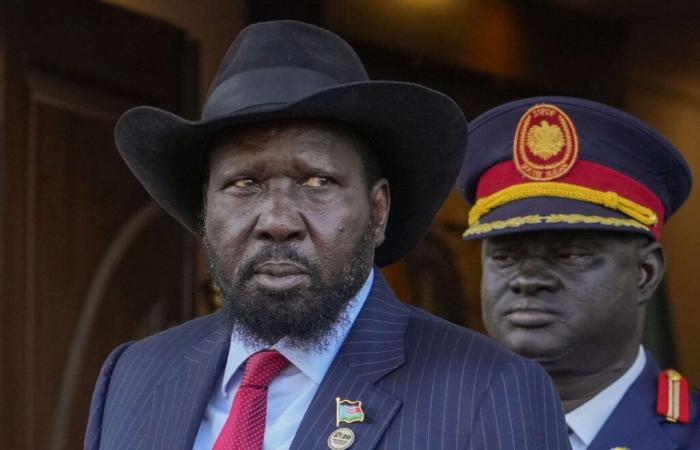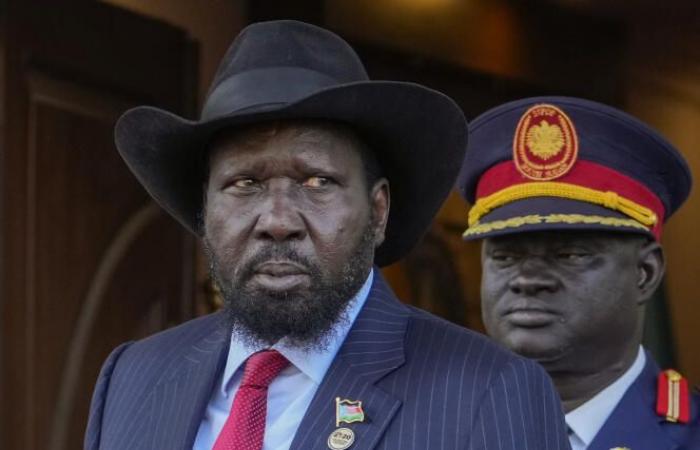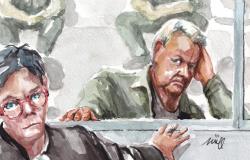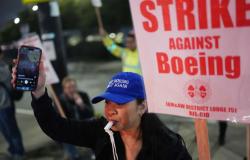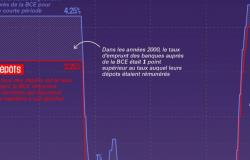The people of South Sudan will have to wait a little longer to take part in the first elections in the country’s young history, which are supposed to end a transition period agreed in a 2018 peace agreement. President Salva Kiir announced on Friday, September 13, a two-year extension of the transition period, as well as the postponement to December 22, 2026 of the elections, initially scheduled for December 2024, according to the Facebook page of the government of this country, which has been independent since 2011.
The peace agreement that ended five years of a deadly civil war in 2018 (400,000 dead and millions displaced) established the principle of a government of national unity integrating the two rivals who set the country on fire and blood, Salva Kiir and Riek Machar, respectively in the posts of president and first vice-president.
Formed after much procrastination in February 2020, this government was tasked with implementing the agreement and carrying out a transition ending with elections. Its initial mandate was thirty months.
Read also: Article reserved for our subscribers In South Sudan, Pope admonishes leaders, saying ‘path to peace’ can no longer be ‘postponed’
Add to your selections
But South Sudan, a country of twelve million people among the poorest in the world, remains undermined by power struggles, corruption, and local ethnic conflicts. Progress in key areas of the agreement (drafting a constitution, creating a unified army, etc.) remains slim.
“A total disappointment”
The government has repeatedly pushed back the end of this “transition” period. The last extension set its deadline for February 2025, after elections in December 2024.
“It’s a total disappointment”Edmund Yakani, a civil society leader at the head of the organization Community Empowerment for Progress (CEPO), told Agence France-Presse. The authorities had “enough time” to organize elections but they only did “delay decision-making” to reach this situation, he estimated. According to him, “These extensions were used as a strategy to cling to power”.
Read also: Article reserved for our subscribers Dozens of European banks suspected of influencing tensions in South Sudan
Add to your selections
For years, international partners have been calling on the authorities in Juba to act so that the people of South Sudan can elect their leaders for the first time in their history. In April, UN Secretary-General Antonio Guterres called for action “urgent measures” to allow elections to be held in December.
The “troika” (United Kingdom, Norway, United States) which sponsored the country’s independence had also urged the parties in June to work together and avoid a delay. “consequential”. “History will judge harshly the leaders who failed to make these elections possible or who acted to prevent them.”she said in a joint statement.
A country kept in misery
President Salva Kiir has repeatedly pledged his commitment to meeting the deadline, but has made no significant progress in organizing the polls. A Council of Political Parties and an electoral commission have been established, but no concrete action has been taken since, and voter registration operations announced to begin in June have stalled. Riek Machar announced in March that he would boycott any polls until key provisions of the peace agreement were implemented.
Read also | Severe flooding in South Sudan: more than 700,000 people affected
Add to your selections
Political strife, communal violence and climatic calamities (drought, floods) keep the country in poverty. Nine million people, including refugees from neighbouring Sudan at war, need humanitarian aid, according to UN figures published in June.
Follow us on WhatsApp
Stay informed
Receive the essential African news on WhatsApp with the “Monde Afrique” channel
Join
South Sudan also lost its main source of revenue after a pipeline that exports its oil was damaged by fighting in Sudan. The incident sent the local currency into a tailspin. The oil sector contributes 90 percent of the landlocked country’s revenue and accounts for nearly all of its exports, according to the World Bank.
The oil windfall is also largely diverted for political and enrichment purposes in this country ranked among the most corrupt in the world by the NGO Transparency International (177e on 180).
Read the decryption | South Sudan: Without oil money, state coffers are empty and elections are threatened
Add to your selections

